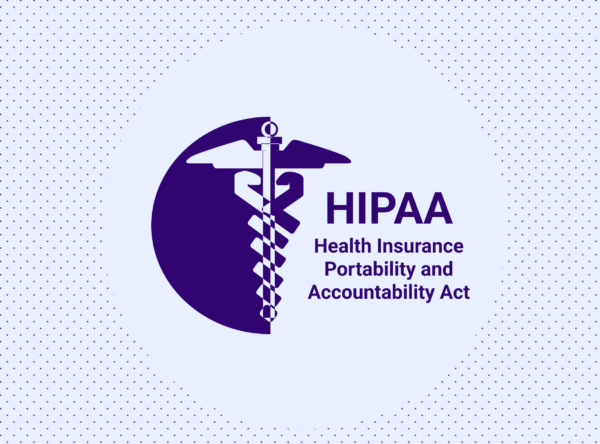HIPAA, which stands for the Health Insurance Portability and Accountability Act, is a crucial piece of legislation enacted in 1996 in the United States. It serves to safeguard sensitive patient health information and outlines regulations for healthcare providers, insurers, and related entities to ensure the privacy and security of individuals’ medical data.
Expanding on HIPAA (Health Insurance Portability and Accountability Act)
HIPAA was introduced to address concerns regarding the electronic exchange of healthcare information, as well as to provide patients with greater control over their personal health data. The Act consists of several key components, including the Privacy Rule, Security Rule, Enforcement Rule, Breach Notification Rule, and Omnibus Rule, each focusing on different aspects of safeguarding patient information and ensuring compliance within the healthcare industry.
Key Features of HIPAA
HIPAA’s key features revolve around ensuring the confidentiality, integrity, and availability of protected health information (PHI). These features include:
- Privacy Rule: Sets standards for the protection of PHI and outlines the rights of individuals concerning their health information.
- Security Rule: Establishes safeguards to protect electronic PHI (ePHI) through administrative, physical, and technical measures.
- Enforcement Rule: Encompasses penalties for violations of HIPAA rules and procedures for investigations and compliance audits.
- Breach Notification Rule: Requires covered entities to notify affected individuals and regulatory authorities in the event of a breach compromising PHI.
- Omnibus Rule: Addresses various aspects of HIPAA compliance, including business associate agreements and modifications to privacy and security rules.
Types of HIPAA
HIPAA can be categorized into different types based on the specific rules and regulations outlined within the Act. These types include:
- Privacy Rule: Focuses on protecting the privacy of individuals’ health information and establishing standards for its use and disclosure.
- Security Rule: Emphasizes the implementation of security measures to safeguard electronic PHI from unauthorized access, use, or disclosure.
Ways to Use HIPAA
HIPAA serves various purposes within the healthcare industry, including:
- Protecting Patient Privacy: Ensuring that individuals’ health information remains confidential and is only accessed by authorized entities for legitimate purposes.
- Enhancing Data Security: Implementing measures to secure electronic health records (EHRs) and prevent data breaches or unauthorized access.
- Promoting Interoperability: Facilitating the secure exchange of health information between different healthcare providers and organizations.
Challenges and Solutions with HIPAA
Despite its benefits, HIPAA compliance presents challenges for healthcare entities, including:
- Complexity: Navigating the intricate requirements of HIPAA regulations can be challenging for healthcare providers and organizations.
- Resource Constraints: Limited resources and budget constraints may hinder the implementation of robust security measures and compliance initiatives.
However, these challenges can be addressed through:
- Education and Training: Providing comprehensive training programs to healthcare staff to ensure awareness of HIPAA regulations and compliance requirements.
- Investment in Technology: Investing in advanced security technologies and solutions to enhance data protection and mitigate cybersecurity risks.
Characteristics and Comparisons
| Characteristic | HIPAA | Similar Terms |
|---|---|---|
| Focus | Protection of health information | Data privacy and security regulations |
| Scope | Healthcare industry | Various sectors and industries |
| Legal Framework | Federal legislation | Industry-specific regulations and laws |
| Compliance Requirements | Mandatory for covered entities | Voluntary or industry-specific compliance |
Future Perspectives and Technologies
The future of HIPAA involves advancements in technology and regulatory measures to address emerging challenges in healthcare data security and privacy. This includes:
- Blockchain Technology: Utilizing blockchain for secure and transparent health data exchange.
- Artificial Intelligence: Implementing AI-driven solutions for proactive risk assessment and compliance monitoring.
- IoT Integration: Integrating Internet of Things (IoT) devices securely into healthcare systems while ensuring HIPAA compliance.
VPN and HIPAA
VPN (Virtual Private Network) can play a crucial role in ensuring HIPAA compliance by:
- Securing Data Transmission: Encrypting data transmissions to protect sensitive health information from unauthorized access or interception.
- Enhancing Remote Access Security: Providing secure remote access to healthcare systems and EHRs for authorized personnel.
- Ensuring Compliance: Facilitating compliance with HIPAA’s security requirements, such as encryption and access controls, when accessing healthcare networks remotely.
Resources for Further Information
For more information about HIPAA and its regulations, you can refer to the following resources:
- Official HIPAA Website: HHS.gov
- HIPAA Compliance Guide: HIPAA Journal
- HIPAA Security Rule Guidance Material: HealthIT.gov


